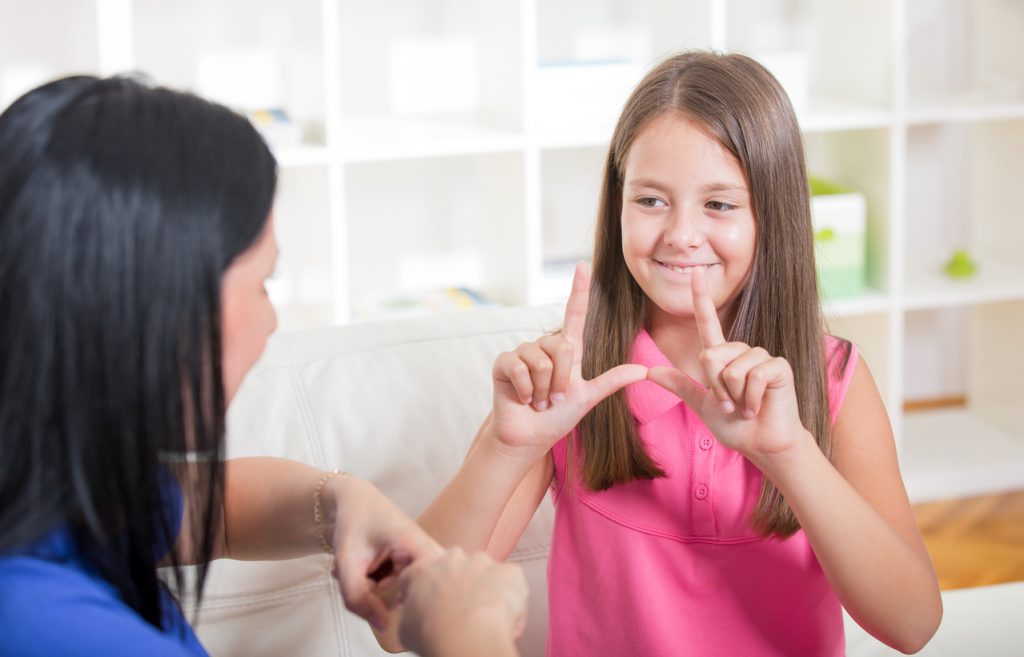Dear Carolyn,
I am a grandmother with an adorable sixteen-month-old grandson. He has recently started a preschool while his parents work. He is learning sign language, which I think is like deaf people learn and use. I don’t remember learning about this when my children were babies. What do you think about this?
– Interested in Sign Language
Dear Interested,
Teaching babies as young as six months old sign language is good parenting practice. Note that speech lags behind cognitive ability in the first year of life. Sign language allows the baby to communicate needs to you before he has the motor skills to actually speak. Hand eye coordination and the desire to communicate develops sooner that the acquisition of verbal skills. Start with a few simple signs and repeat them over and over. It will be a fun activity for you and your grandchild.
There are over 600 signs in the online baby sign language dictionary, but you might start with these ten: Mom, Dad, Grandmother (an important one to you), Grandfather, Dog, Cat, Milk, Eat, More, and All Done. Other important words for baby to learn are sleep and change. There are online flashcards you can download for your use. There also are videos of the signs in action.
There are many benefits to teaching a baby sign language. First, studies show that when a child can communicate the child is less frustrated and has fewer tantrums. Second, the learning activity of sign language creates bonding between the parent/grandparent and the child. Third, use of sign language reduces the stress of misunderstandings. Fourth, essentially your baby becomes bilingual if the child continues to learn sign language, which is a developmental achievement.
Have a family law question? Ask Carolyn!
Submit your question to Ask Carolyn here. Please do not put identifying information in your questions.
Note that the answers in “Ask Carolyn” are intended to provide general legal information, and the answers are not specific legal advice for your situation. The column also uses hypothetical questions. A subtle fact in your unique case may determine the legal advice you need in your unique case. Also, please note that you are not creating an attorney-client relationship with Carolyn J. Woodruff by writing or having your question answered by “Ask Carolyn.”
This blog is revised from a previous Ask Carolyn published in the Rhino Times.
 Ask Carolyn
Ask Carolyn




